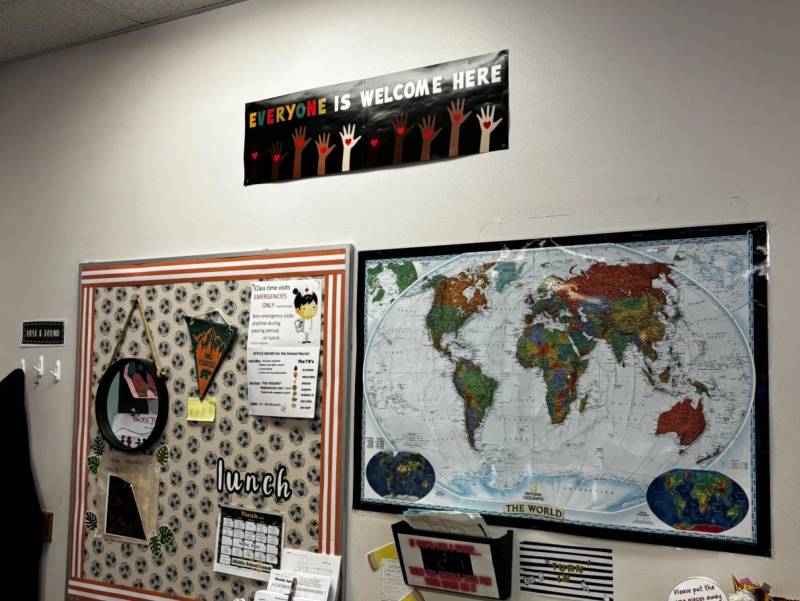Trump Sides With the Israeli People Against Netanyahu
Most Israelis want to end the war, but their prime minister does not.

Today, Hamas freed Edan Alexander, its sole remaining living American hostage. The release was the result of a back-channel dialogue between the United States and the terrorist group ahead of Donald Trump’s arrival in the region this week. Announcing the news on social media, the president heralded the event not as a one-off, but as a step “to put an end to this very brutal war and return ALL living hostages and remains to their loved ones.” Israel was not involved in the process and, according to Axios, found out about the negotiations only through its intelligence services.
Some reports have cast this disconnect as indicative of a chasm between Trump and Israel. But this is a misreading. The divide is not between the president and Israel so much as between the president and Israel’s leader. Most Israelis support what Trump is doing—and oppose Prime Minister Benjamin Netanyahu’s approach to the war in Gaza.
This dynamic was evident from an emotional moment that took place in mid-air. Earlier today, Adam Boehler, Trump’s special envoy for hostage response, flew to Israel with Alexander’s mother in advance of her son’s release. In an unusual move, Boehler addressed the commercial flight over the intercom. “President Trump, when he told me to go get back every hostage, every Israeli, he wasn’t kidding,” Boehler told the passengers. “And I want you to know that this is the start. We’re going after every single hostage that there exists in all of Israel. We’re coming for them all, because the bond of Israel and the bond of the United States has never been stronger.” The people on the plane applauded.
This response is not surprising. For months, polls have shown again and again that some 70 percent of Israelis support striking a deal to free the remaining hostages over continuing the war. The problem is that Netanyahu is politically beholden to the radical minority that not only wants to escalate the conflict, but hopes to ethnically cleanse Palestinians from the Gaza Strip and replace them with Jewish settlements. And without the far-right parties pushing this outcome, Netanyahu’s coalition government would collapse.
[Read: Israel plunges into darkness]
Trump knows that most Israelis want to conclude the war with diplomacy, and not just because he and his team can read polls. Back in March, the president met with hostages who had been freed during prior cease-fires and reportedly asked them whether the Israeli public was willing to back another hostage deal. Their answer was not officially disclosed, but most of those who met with Trump have since rallied for a new hostage agreement, and they are far from alone. The latest survey by Israel’s Institute for National Security Studies found that 69 percent of Israelis support “ending the war in exchange for an agreement to return all the hostages”; only 23 percent are opposed.
Any deal would require the release of notorious terrorists from Israeli prisons, but that’s a price the public is willing to pay. Back in 2011, 79 percent of Israelis supported the release of more than 1,000 Palestinian prisoners—including brutal murderers such as Yahya Sinwar, the future architect of the October 7 massacre—in exchange for a single captive Israeli soldier. Leaving no one behind is essential to the Israeli ethos, because the country’s people know that the world has historically been willing to abandon Jews to their fate. One can see this outlook as noble, narrow, or shortsighted, but it is the reality, and Trump has placed himself on the side of it and the Israeli people.
Netanyahu has not. Although diplomacy reflects both the Israeli preference and the American interest, the prime minister cannot straightforwardly pursue it, because his far-right coalition rejects it. And so Trump and his envoys Boehler and Steve Witkoff seem to have decided to force the issue, knowing that Netanyahu will likely have to go along with whatever Trump proposes, because he has nowhere else to turn. In the past, Netanyahu has waited out Democratic presidents and relied on allies on the American right to run cover for him while doing so. But with Trump, he has no such options.
Nor does Netanyahu have his public’s approval. The prime minister’s coalition received just 48.4 percent of the vote in Israel’s last election. More than 70 percent of the public wants Netanyahu to resign either now or after the war. The INSS survey found that 76 percent of Israelis have little or no faith in the current government, which has been losing in the polls since well before October 7.
Israel today is a war-weary society that wants to get its people back, not to advance an extremist endgame cooked up by the far right to expel Gazans and indefinitely occupy the Strip. Just 20 percent of Israelis support Jewish settlement in Gaza, and only 16 percent back prolonged Israeli military governance there.
Given these realities, Trump may well understand that his Israeli counterpart is a paper tiger who lacks popular legitimacy. The question is: How far will he press his advantage? For now, the Alexander negotiation that sidelined Netanyahu and the Trump team’s subsequent push for a final hostage and cease-fire deal suggests that the administration has picked a side—the Israeli majority’s side.






























































